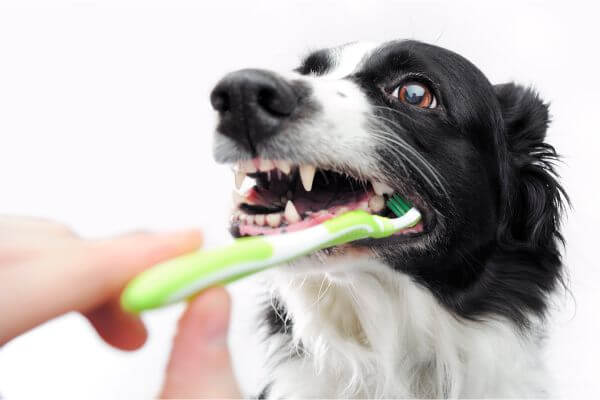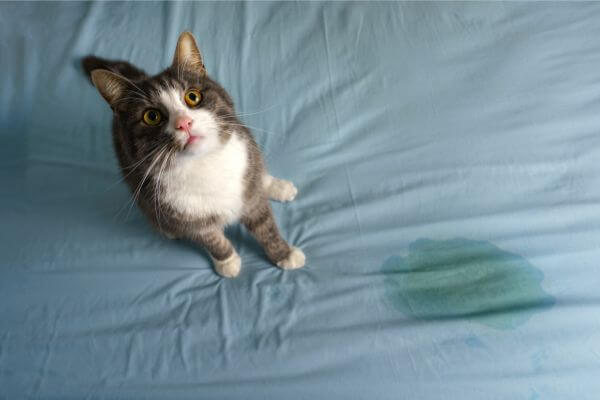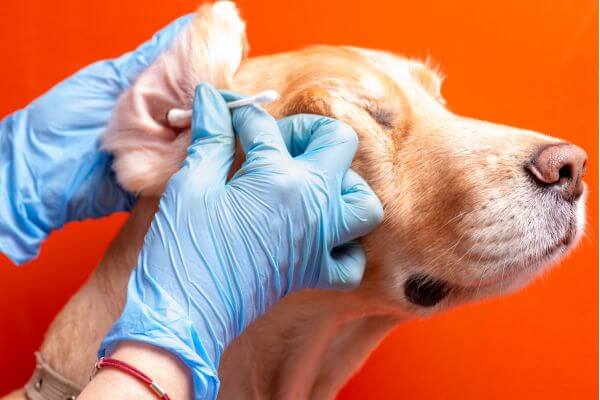Taking care of your pet’s health is an important responsibility, and this includes oral hygiene. Surprisingly, pet oral health is often overlooked, despite being crucial for their overall well-being.
In this article, you will find a complete guide on everything you need to know to keep your pet’s mouth healthy.

The Importance of Oral Hygiene in Pets
Your pet’s oral health is more important than you might think. Dental problems in pets can lead to serious health conditions, including heart, kidney, and liver diseases. Infections in the mouth can spread to other parts of the body, leading to serious complications. Therefore, a proper oral care routine is essential for your pet’s overall health.
Warning Signs of Dental Problems
The first signs of dental problems in pets include bad breath, red or swollen gums, broken or loose teeth, loss of appetite, difficulty chewing, or disinterest in chew toys. Changes in behavior, such as irritability or reclusion, can also occur. If you notice any of these signs, it is crucial to consult a veterinarian.
The Practice of Teeth Brushing
Regular brushing is the most effective way to care for your pet’s teeth. It is recommended to use a toothbrush suitable for the size and species of your animal and a specific toothpaste for pets. Introduce brushing gradually and positively so that your pet gets used to it.
Tips for Effective Brushing
- Choose the Right Time: Start brushing when your pet is calm and relaxed.
- Positive Associations: Make brushing a positive experience by using rewards.
- Brushing Techniques: Use gentle movements and focus on each tooth and the gum line.
- Regularity: Ideal brushing should be daily to prevent plaque and tartar formation.
Alternatives to Brushing
When daily brushing is not possible, consider these alternatives:
- Dental Toys and Treats: Products specially designed to clean the animal’s teeth while they chew.
- Special Diets: Some foods are formulated to aid in dental health.
The Importance of Veterinary Visits
Regular visits to the veterinarian are crucial. The veterinarian can perform professional dental cleanings and identify problems before they become severe. They can also provide specific guidance for your pet’s breed and age.
Professional Dental Cleanings
Professional cleanings are performed under anesthesia and include the removal of tartar and plaque, both above and below the gum line. This procedure is important to prevent periodontal diseases.
Preventing Dental Problems
In addition to regular brushing and veterinary visits, you can take additional measures:
- Appropriate Diet: Dry and crunchy foods can help clean teeth naturally.
- Avoid Sticky Foods: These foods can contribute to plaque and tartar formation.
- Appropriate Toys: Some toys can be too hard and damage the teeth.
Choosing Oral Hygiene Products
It is important to choose safe and effective oral hygiene products for your pet. Products with a veterinary seal of approval are recommended.
The Connection between Oral Hygiene and Overall Health
Your pet’s oral health is intrinsically linked to their overall health. A healthy mouth can prevent a number of health issues.
Education and Information
Staying informed about the best practices for pet oral hygiene is crucial. Read articles, participate in workshops, and talk to veterinary professionals to stay updated.
Conclusion
Oral hygiene is an essential, but often overlooked, aspect of pet health care. It requires a combination of regular brushing, veterinary check-ups, a proper diet, and the choice of safe oral hygiene products. With the correct approach, you can ensure that your pet maintains a healthy smile and has a long and happy life.”


